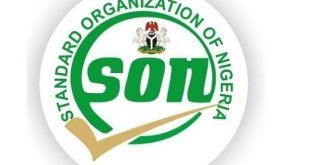
The Coordinator of the Ports Standing Task Team (PSTT) Moses Fadipe has decried the corruption, and lack of transparency in Nigerian ports and the rivalries amongst maritime agencies which have led to a myriad of challenges in the sector.
Speaking on the theme “Strengthening Compliance, The Role Of Data In Enforcement And Opportunities For Collaboration” at the 4th Compliance Roundtable of the Convention on Business Integrity and the Maritime Anti-Corruption Network held in Lagos lamented how rivalry among government agencies has led to the lack of sharing of data needed to drive compliance in the port environment.

“Corruption, inefficiency, and lack of transparency have not made the sector progress. That is why all indices from the port logistics index, and the corruption perception index, all show inefficiency in the system.
So, we look at the efforts being done over the years, but we look at that gap of data-driven compliance in strengthening and enforcement efforts. Because of the lack of data, it does not really make us focus on how to put our efforts into tackling our port problems.

Also, because of agencies’ non-collaboration, it makes the system not unable to achieve what it intends to achieve sub-optimally.
We expect all the actors in the maritime sector; the service providers, and the regulatory agencies to work together. The extent to which we are working together is another issue. The extent to which we are trying to share data is another issue. The extent to which we are trying to share intelligence is another issue. And when we look at all these that we have spoken about, what has it led to? It leads to a lot of challenges which does not exclude corruption and inefficiency, and all of these challenges inside the port are what now transcend to outside the port. Before you know it, the outside of the port is blocked leading to congestion” he said.
He lamented that the lack of empirical data to know the number of trucks going in and out of the ports and those going into the tank farms make it difficult to plan effectively on handling the issue of congestion.
“Data enables authorities to identify the patterns of infraction, anomalies, and potential rates of corruption. By analyzing data from various sources, including port operations, cargo tracking systems, and financial records, compliance teams can identify the styles of non-compliance, pinpoint areas of successive corruption, and dismantle corruption networks. Data analysis allows for the identification of bottlenecks and inefficiencies within the port processes.
It enables authorities to implement targeted improvements and foster transparency by providing real-time information on cargo movement” he added.
 MMS PLUS NG – Maritime, Aviation, Business, Oil and Gas News Online Newspaper with coverage in Maritime, Oil and Gas, Aviation, Power and Energy as well as Financial News
MMS PLUS NG – Maritime, Aviation, Business, Oil and Gas News Online Newspaper with coverage in Maritime, Oil and Gas, Aviation, Power and Energy as well as Financial News







